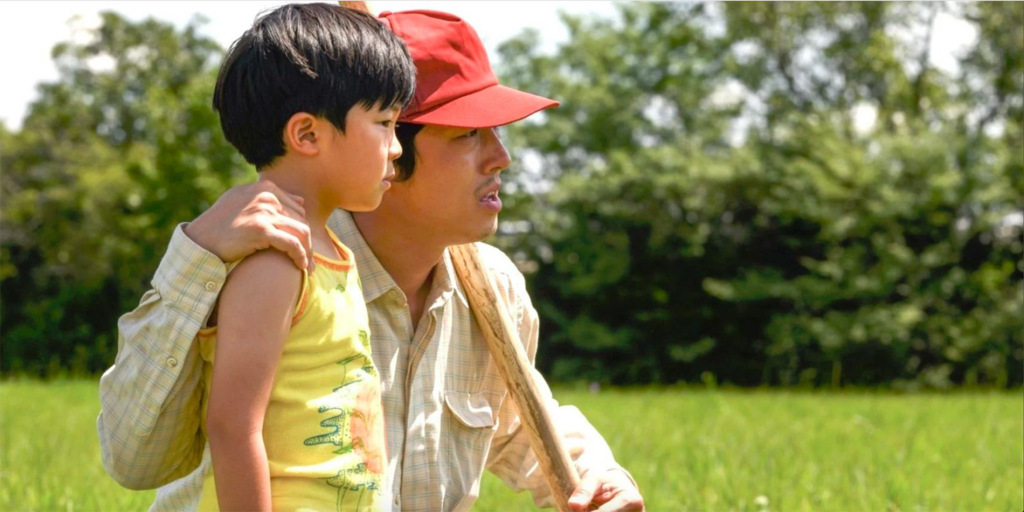The 2021 Golden Globes Winner for Best Foreign Language Film is about a Korean-American family in rural Arkansas
“She’s the reason I made this film,” said Lee Isaac Chung as he held his daughter in his arms.
It was an opening line to an acceptance speech for a bittersweet victory.
Minari (2020) is a semi-autobiographical film written and directed by Denver-born director Lee Isaac Chung. It tells the story of a Korean American family’s relocation from California to rural Arkansas in the 1980s, where its patriarch is determined to start a farm. Despite its universally relatable storyline, debates over the film’s eligibility to compete amongst other American films persist.
Minari’s Golden Globe nomination for Best Foreign Language Film has stirred up a complex, painful awareness of rejection and alienation for Asians across America and Canada, like myself.
Minari was written, directed, filmed and produced in America; it tells the story of an American family in the midwest, and stars a predominantly American cast — yet its win for Best Foreign Language Film has punctuated the chasm between what is offered to American families of colour, and what is demanded of them.
The Hollywood Foreign Press Association (HFPA) rejected Minari’s bid for Best Picture because the film is predominantly in Korean. However, as film journalists have highlighted, the HFPA nominated Quentin Tarantino’s Inglourious Basterds — which also features foreign languages — in the main category of Best Film in the past. The HFPA’s rejection of Minari as an American film is representative of the open rejection of the Asian diaspora and their place in North America.
Minari stars the Yi family — parents Jacob and Monica are chicken sexers from California who have an opportunity to pay off their debts if they can successfully get their small farm started in Arkansas.
As the family struggles with supporting Jacob’s parents as well as managing the heart condition of their eight-year-old son, David, a decision was made for Monica’s mother to come from South Korea to live with the family.
First and second generation Asian immigrants are all too familiar with the layered complexities of filial piety in the same ways that the Yi family experiences — living in multigenerational homes while navigating their obligations between the generations before and after them.
David complains throughout the film that his grandmother isn’t “like a real grandma.” That she “smells like Korea” and should be baking cookies. Instead, David’s grandmother brings him to a creek deep in the woods near their trailer home, and introduces him to a Korean plant called minari. She tells him that “Minari grow anywhere,” and that “Rich or poor, anyone can enjoy it and be healthy.”
The film’s cultural significance is a universal language of the rooting of our ancestral tapestry — from which every American-born Asian child and grandchild blossom.
Much like David, the young boy in Minari, I grew up with varying degrees of shame and pride for my dual identities as both American and Chinese. As an adult who later immigrated to Canada, learning French and settling into life in Montreal has been a natural extension of my existing immigrant identity. So natural, that when I was interrupted mid-conversation with a friend on the STM to be complimented for my “good English,” I was vilified for calling out this problematic behavior.
Language has been a particularly sore subject for me — I speak English with perfect fluency, and French with a barely detectable accent. But try as I might, everywhere I went, I was reminded that no amount of assimilation would ever be enough.
In the film, Jacob toils away at a piece of cursed land, negotiating his priorities against his dreams throughout the film. It is perverse that this universally relatable story of resilience and perseverance is categorized as foreign.
What Asian Americans heard was a message we’ve heard throughout our lives — you may speak perfect English, know no home other than the United States, be born and raised on American soil, tend to a piece of the American dream, and still be considered an outsider.
Perhaps narratives like the struggling farmer or western cowboy trespasses into the kind of American identity that immigrants and BIPOC are restricted from. We are only allowed to be Americans with a hyphen — because the full American identity isn’t available to us.
Asians born in rural Quebec and densely populated New York alike live a shared reality — a constant interrogation of both our roots and our allegiances, as if our only choices are one or the other. Perhaps the most revealing nuance for immigrants in North America is the silent understanding that as we commit to a lifelong embrace of our western home, its institutions will continuously fail to embrace us.
Nevertheless, Asians in North America will honour films like Minari for the ways it immortalizes our stories — offering a long overdue perspective of ethnic Americans in an otherwise predominantly white western narrative.




